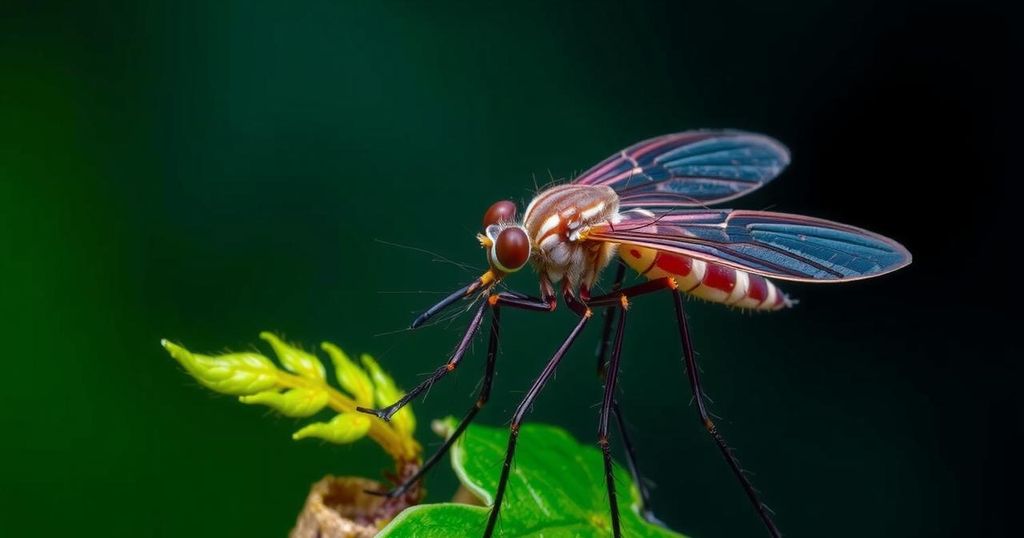Research Links Climate Change to Surge in Dengue Cases Worldwide
New research reveals that nearly a fifth of global dengue cases this year are caused by climate change, which has allowed mosquitoes to thrive in new areas. The study projects that certain regions could see a 200% increase in cases over 25 years. Additionally, the introduction of Wolbachia-infected mosquitoes shows promise in reducing dengue transmission.
Recent research indicates that climate change is responsible for nearly 20% of the record dengue cases reported globally this year. Researchers, including Erin Mordecai from Stanford University, have determined that higher temperatures are conducive to the proliferation of dengue, a mosquito-borne viral disease. This year’s statistics show that dengue outbreaks have surged in number, compelling academics to examine the correlation between climate change and the spread of such infectious diseases. In a new study involving 21 countries, the researchers discovered that rising global temperatures are likely to owe approximately 19% of current dengue cases. Specifically, regions in Peru, Mexico, Bolivia, and Brazil are expected to experience up to a 200% increase in dengue infections over the next 25 years due to warming.
Dengue fever, transmitted by infected mosquitoes, typically affects tropical and subtropical regions. However, climate change is extending the habitats of these mosquitoes, thereby increasing the likelihood of outbreaks in new geographic areas. This study aims to deepen the understanding of how climate change not only influences extreme weather events but also has profound implications on public health through disease transmission, which has emerged as an essential area of research.
In conclusion, the connection between climate change and health issues, particularly dengue fever, highlights the urgent need for effective strategies to combat both environmental change and disease outbreaks. The findings, which suggest significant regional risks in the coming decades, emphasize the vital importance of addressing climate change proactively, as it poses both environmental and public health challenges.
Original Source: www.barrons.com




Post Comment